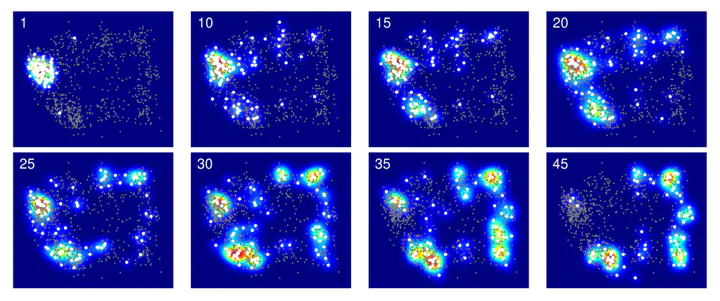
Abstract
We have conducted an experiment with the intent to determine and quantify what properties of monophonic melodies humans perceive as appealing. This was done in an evolutionary setting: a population of melodies was subjected to Darwinian selection with popular human vote serving as the basis for the fitness function. We describe the experimental procedure, measures to avoid or minimise possible experimental biases, and address the problem of extracting maximum fitness information from sparse measurements. We have rigorously analysed the course of the resulting evolutionary process and have identified several important trends. In particular, we have observed a decline in complexity of melodies over time, increase in diatonicity, con-sonance, and rhythmic variety, well-defined principal directions of evolution, and even rudimentary evidence of speciation and genre-forming. We discuss the relevance of these effects to the question of what is perceived as a pleasant melody. Such analysis has not been done before and hence the novel contribution of this paper is the study of the psychological biases and preferences when popular vote is used as the fitness function in an evolutionary process.